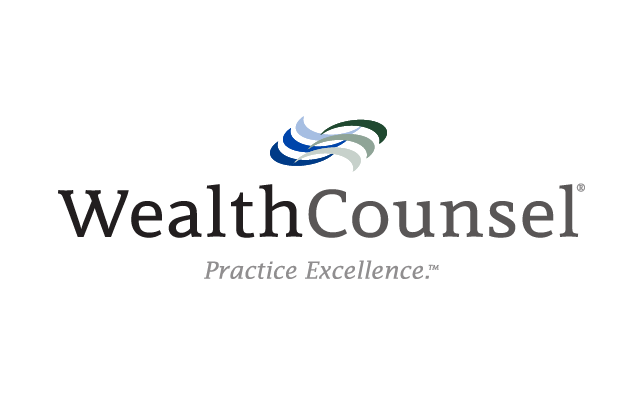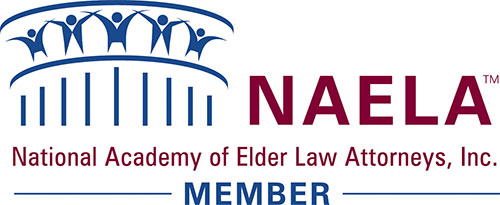Do you know that, according to the National Association of Home Builders, May is National Home Remodeling Month? Many people associate spring with cleaning out the old, brushing off the dirt accumulated from the long winter, and starting projects around the house that have been neglected for far too long.
Perhaps, however, your home is fine as is and you need a remodeling project for something other than your home. Estate planning is one area that often goes unexamined and neglected. Is it time to remodel your estate plan? If so, is that something that you can (or should) do on your own?
Small Estate Planning Updates
Upon reviewing your estate planning documents, you may notice a number of seemingly small issues that need to be addressed, but you may wonder whether you need an attorney to assist you. You may want to make one or more of the following changes:
- You want to change your name or the name of your spouse or a beneficiary
- You want to appoint different decision makers (trustees, agents, executors, etc.) in your estate plan
- You want to remove beneficiaries
- You want to add new beneficiaries
- You want to change how much each beneficiary will inherit under your estate plan
A quick examination of each of these changes, and the consequences of attempting to alter your documents accordingly, may help you determine whether you need the help of a professional.
You Have Changed Your Name
If you have changed your last name because of a marriage or simply because you prefer another name, and the content of your estate planning documents does not need to be changed (for example, your trusted decision makers and the distribution of your property to your loved ones remain the same), all that may be required is that you keep copies of any legal paperwork reflecting the name change together with your estate planning documents. The legal paperwork, such as a marriage certificate or an affidavit of name change, will allow your trusted decision makers to show a bank or title company that the maker of the estate planning documents and the person renamed by the marriage certificate or affidavit are the same individual.
That said, if your new name is a result of remarriage, both you and your new spouse may dislike seeing your old last name all over your estate planning documents. In that case, you should consider asking your attorney to either help you draft official amendments to your existing documents or execute entirely new documents. Also, if your name changed as a result of remarriage, you may need to replace the name of your former spouse with the name of your new spouse in your documents.
Note, however, that, if a trust you established for estate planning purposes has your old name in the trust title and you have transferred accounts and property to that trust, you should get help from an attorney to ensure that the trust name is properly amended along with the retitling of the accounts and property in the trust. Some individuals choose to leave their trust name the same to avoid having to retitle any accounts and property after changing their name. However, that can create confusion. That is why it is best to consult an attorney in this situation.
A Beneficiary’s Name Changes
What if a beneficiary’s name changes either because of marriage or preference? Should you update your estate planning documents?
As in the discussion above, it is not necessarily critical that you update your documents if your beneficiary can prove that the beneficiary is the same person who is named in your documents. A court order, a marriage certificate, or a birth certificate can establish the name change and should not create too much trouble for your beneficiary.
Avoid writing on your estate planning documents. Crossing out someone’s name and writing in the new name has resulted in confusion and even litigation when the intent of the edited document was unclear. Courts throughout the country have had to weigh in on these types of ad hoc edits to estate planning documents to determine who made the edits, what the intent was, and whether they are valid. Although it may seem harmless and straightforward at the time, unforeseen consequences can often arise when you attempt to edit such legal documents yourself.
Adding or Removing a Beneficiary
Perhaps a new child has been born to the family or a beneficiary has passed away. Do you need to address the event in your planning documents? It depends. Many estate planning documents are drafted to anticipate future additions to the family, such as children and grandchildren, as well as future beneficiary deaths.
The language of your estate planning documents may assume that you want all of your children to receive an equal share of your accounts and property and that your grandchildren should inherit their deceased parent’s share. However, not all estate planning documents are drafted that way. In fact, you may need to add or remove a beneficiary by name for your intent to be properly carried out. Never attempt to add or remove beneficiaries from your estate planning documents on your own. Serious legal consequences can result from making such changes without legal advice. In some cases, people to whom you intend to leave property could inadvertently be cut off from receiving an inheritance. And in other cases, your property could end up with those whom you never intended to benefit from your estate.
For example, suppose a couple decided to leave a small share of their estate to each of their children’s spouses and therefore added the spouses’ names to the list of children in their estate planning documents. Then suppose that a blood-related child died and the child’s spouse remarried. Upon the parents’ deaths, the former in-law becomes a beneficiary of the family trust and, under applicable state law, could have certain rights regarding the administration of the trust. The former in-law could have the right to demand a copy of the trust documents and any financial accountings and could even have the right to sue the trustees if the former in-law felt that they were not moving fast enough to distribute the individual’s share of the trust. And once that share was paid out, the former in-law might use it in a way that the parents never intended: to benefit a new spouse or a child from another marriage, creating seriously negative results from an innocent and well-meaning attempt to provide for an in-law.
Appointing New Trusted Decision Makers
At other times, you may review your documents and realize that you no longer want the person you originally named as trustee, executor, or agent to make important decisions about your property if you become incapacitated or die. Again, it may be tempting to simply draw a line through the names of the persons you want to remove and add the names of your new preferred decision makers. But first you should understand that certain legal documents may not be amended so easily. In fact, under certain circumstances, writing on a legal estate planning document can void the document altogether.
With such important changes, you should have the documents redrafted and executed with the same formalities that were used with your original documents, making sure to follow the applicable state law. For example, your state may require multiple unrelated witnesses to the signing of a new will, even if the new will contains only a one-sentence change. The same is true for a codicil, or amendment, to your will. Similar formalities, such as having your signature notarized, may also be required with other documents—for example, a power of attorney or a trust amendment or restatement.
Changing Distribution Shares
Sometimes, you may be tempted to change the distribution provisions of your will or trust by adjusting the percentage or fraction shares of your estate. You should never attempt to do this on your own. If you wish to adjust the distribution provisions of your will or trust, always consult your attorney. You should consider this type of amendment very carefully and execute it with strict formalities and documentation. This type of change to your estate planning documents is fraught with the risk that a beneficiary who will receive less under the amendment will challenge it and use any argument available to have the changes invalidated. An experienced estate planning attorney will know the necessary steps to take to ensure that your documents will be honored by your beneficiaries, and the courts, after you are gone.
As you can see, there are many potential pitfalls that you can stumble into if you attempt to remodel your estate plan without the help of a trained and experienced attorney. In many cases, these small changes don’t have to be expensive. Your attorney will be able to fix some of these small issues very quickly and inexpensively by drafting an amendment to your estate planning documents. Other changes may require more work because the issues are considerably more complex than you first realized. In either case, you can rest assured that, with a legal professional guiding you through the process, you will not be leaving your loved ones with a legal mess to sort out after you are gone.
If you are not sure whether you will need an attorney to help you remodel your estate plan, call us. We are happy to consult with you and help you determine what changes, if any, you may need to make. Call us today at (405) 928-4075.
Confidential or Privileged Information: This email is from the Law Office of Tyler R. Barrett, P.L.L.C. and may contain confidential or privileged information. If you received this email in error, please reply to [email protected] to advise them of the error and delete this email and any attachments.
Tax Advice Disclosure: To ensure compliance with requirements imposed by the IRS under Circular 230, we inform you that any U.S. federal tax advice in this communication (including any attachments), unless otherwise specifically stated, was not intended or written to be used, and cannot be used, for the purpose of (1) avoiding penalties under the Internal Revenue Code or (2) promoting, marketing or recommending to another party any matters addressed herein.













